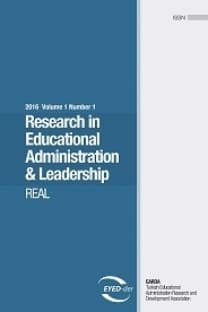Azerbaijan and European Higher Education Area: Students’ Involvement in Bologna Reforms
This study explores the progress of the 15-year old Bologna reform in major Azerbaijani public universities. The focus of the study was to investigate the level of student involvement in the transformation process of the European Higher Education Area. The data for the research were collected from a survey conducted among 2,400 bachelor’s and master’s students, as well as through semi-structured interviews with university administrators and experts. The study mainly examines the key elements of Bologna process – degree structure, quality assurance, mobility, and social dimension. The study found that despite the remarkable progress in the development of higher education system in the country, much work still needs to be done at the institutional level to involve students in all stages of the reform process. Huge discrepancies and shortages are observed with respect to the role of students in the quality assurance process both at the external and internal level. In terms of the internationalization of institutions, formal strategies and targets, as well as sufficient funding, are not yet fully existent in higher education institutions. Meanwhile, students in the chosen universities are either unaware of student support services or unsatisfied with the provision of those services.
___
- Ahn E. (2016) Moving Toward Bologna: Internationalization and Institutional Convergence in Kazakhstani Higher Education. Higher Education in Russia and Beyond, 2(8), pp. 8-9. Ahn E. (2016) Moving Toward Bologna: Internationalization and Institutional Convergence in Kazakhstani Higher Education. Higher Education in Russia and Beyond, 2(8), pp. 8-9
- Aliyev, G., Valiyev, A., & Rustamova, S. (2011). Social Protection and Social Inclusion in Azerbaijan. Manuscript, European Commission Directorate-General for Employment, Social Affairs and Inclusion. Aliyev, G., Valiyev, A., & Rustamova, S. (2011). Social Protection and Social Inclusion in Azerbaijan. Manuscript, European Commission Directorate-General for Employment, Social Affairs and Inclusion.
- Baghirov, P., & Gurbanova, V. (2017). Overview of the higher education system in Azerbaijan. Luxembourg: Publications Office. Baghirov, P., & Gurbanova, V. (2017). Overview of the higher education system in Azerbaijan. Luxembourg: Publications Office.
- Bargel, T. (2011). Student experiences and evaluation of Bologna-Process and bachelor: Empirical results of the German student survey. Konstanz: Arbeitsgruppe Hochschulforschung, Univ. Bargel, T. (2011). Student experiences and evaluation of Bologna-Process and bachelor: Empirical results of the German student survey. Konstanz: Arbeitsgruppe Hochschulforschung, Univ.
- Bologna with student eyes. (2005). Bergen: ESIB. Bologna with student eyes. (2005). Bergen: ESIB.
- Bologna. (n.d.). Ministerial Conference Berlin 2003. Retrieved from http://www.ehea.info/cid100938/ministerial-conference-berlin-2003.html
- Bologna. (n.d.). Ministerial Conference Yerevan 2015. Retrieved from http://www.ehea.info/cid101764/ministerial-conference-yerevan-2015.html
- Creswell, J. W. (2012). Educational Research: Planning, Conducting, and Evaluating Quantitative and Qualitative Research (4th ed.). Boston: Pearson.
- Crosier, D., & Parveva, T. (2013). The Bologna process: Its impact on higher education development in Europe and beyond. Paris: UNESCO: International Institute for Education Planning.
- ECTS users guide 2015. (2015). Luxembourg: Publications Office of the European Union.
- European Commission/EACEA/Eurydice, 2018. The European Higher Education Area in 2018: Bologna Process Implementation Report. Luxembourg: Publications Office of the European Union.
- Huisman, J., Smolentseva, A., & Froumin, I. (2018). 25 years of transformations of higher education systems in post-soviet countries: Reform and continuity. Cham: Palgrave Macmillan.
- Kehm, B., & Teichler, U. (2006). Which direction for bachelor and master programmes? A stocktaking of the Bologna process. Tertiary Education and Management, 12(4), 269–282.
- Kooij, Y. (2015). European higher education policy and the social dimension: a comparative study of the Bologna process. Basingstoke: Palgrave Macmillan.
- Law on education of the Republic of Azerbaijan. (2009, September 5). Retrieved from https://edu.gov.az/az/page/72/302
- Lezhava, D. (2016, July). Bologna Process: Europeanization of Georgia’s Higher Education System [Scholarly project]. Retrieved from https://www.researchgate.net/publication/309667953
- Luchinskaya, D., & Ovchynnikova, O. (2011). The Bologna Process Policy Implementation in Russia and Ukraine: Similarities and Differences. European Educational Research Journal,10(1), 21-33. doi:10.2304/eerj.2011.10.1.21
- National Report regarding the Bologna Process implementation 2012-2015 Azerbaijan (Rep.). (2015).
- National Report regarding the Bologna Process implementation 2009-2012 Azerbaijan (Rep.)(2012).
- (n.d.). Retrieved from http://www.ehea.info/page-ministerial-conference-paris-2018
- Sursock, A., & Smidt, H. (2010). A decade of change in European Higher Education (pp. 1-128, Rep.).
- The Bologna Process in Bulgaria, Romania, Moldova, Georgia, Ukraine and Turkey(pp. 1-31, Rep.). (2014). Varna.
- The European Higher Education Area: Achieving the goals. (2005). Bergen.
- The Demographic and health survey, Azerbaijan, 2011(pp. 1-331, Rep.). (2013). Baku.
- Vögtle, E. M., & Windzio, M. (2016). Networks of international student mobility: enlargement and consolidation of the European transnational education space? Higher Education, 72(6), 723–741. doi: 10.1007/s10734-015-9972-9
- Witte, J. K. (2006). Change of degrees and degrees of change: comparing adaptations of European higher education systems in the context of the Bologna process (dissertation).
- Yağci, Y. (2010). A Different View of the Bologna Process: The case of Turkey. European Journal of Education,45(4), 588-600. doi:10.1111/j.1465-3435.2010.01456.x
- Yayın Aralığı: Yılda 4 Sayı
- Yayıncı: Dokuz Eylül Üniversitesi
